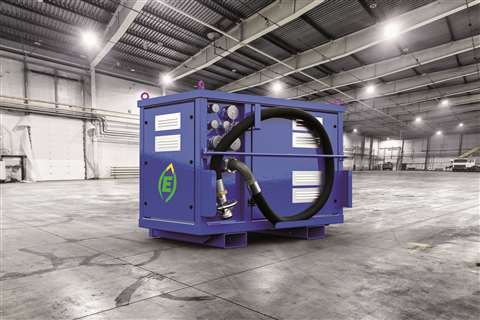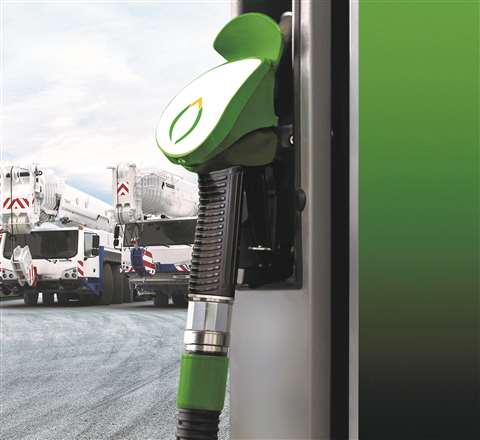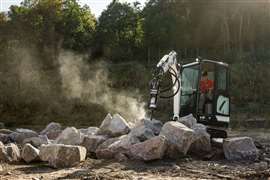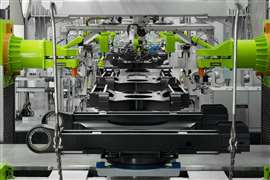Tadano sets sustainability as business goal
28 September 2021
Crane and access equipment manufacturer Tadano has made environmental protection and sustainability a priority.
“In addition to supporting the recommendations of the Task Force on Climate-related Financial Disclosures (TCFD), the Tadano Group has established the clear goal that by 2030, we will reduce CO2 emissions from our business activities worldwide by 25 per cent and our products by 35 per cent,” said Toshiaki Ujiie, Tadano CEO.
The company said its fleet will be gradually converted to engine technologies with zero emissions, or at least significantly reduced emissions.
E-pack availability
An early step towards sustainability is the E-Pack, a product to allow zero-emission crane operation. It is an electro-hydraulic power pack with a 32 kilowatt electric motor driving a hydraulic pump. Power is from a 400 Volt electricity supply of 63 or 32 Amps.
 Tadano’s product E-Pack allows zero-emission crane operations
Tadano’s product E-Pack allows zero-emission crane operations
The AC 3.045-1 City and AC 4.080-1 all terrain crane models can then work with zero emissions, as well as more smoothly and quietly for the crane operator.
“The E-Pack will soon be usable with additional crane models,” said Tadano all terrain crane product line vice president Frank Schröder.
The unit, which is available as an option, is recommended for crane jobs inside buildings, in dense urban areas, and at night in residential areas, on job sites where crane operations need to adhere to stricter emissions and low noise requirements.
“We’re already assuming that the number of requests for quotations asking for zero-emission operation, or at least significantly reduced emissions, will keep growing in the future. In fact, that’s already the case in the Netherlands and Scandinavia,” said Schröder.
Alternative fuels
A number of Tadano cranes run on alternative diesel fuels. For the European market, the company said that all Tadano HK superstructure engines, all CC lattice boom crawler cranes, the GTC 1800EX telescopic boom crawler crane, and nearly every all terrain crane can be operated with paraffinic and synthetically produced diesel fuels, in conformity with DIN 15940, without modification.
 A number of Tadano cranes run on alternative diesel fuels
A number of Tadano cranes run on alternative diesel fuels
This includes reduced-emission fuels such as HVO, GtL, and BtL.
Hydrotreated vegetable oil (HVO) in particular is a very promising solution for environmental protection and fighting against climate change, the company said. It is a renewable fuel based on vegetable oils and animal fats, which can be obtained as waste products from food production. HVO has almost the same energy density as fossil diesel but is claimed to be virtually carbon neutral from production to combustion.
“Even if HVO is not available everywhere, we consider it an effective option for reducing particulate matter and greenhouse gas emissions in existing vehicles and allowing for operations with significantly reduced emissions throughout the entire lifecycle of our products and beyond. That’s why Tadano will be gradually switching its plants over to renewable fuels so as to keep the emissions from our cranes as low as possible starting from the actual production process,” said Jens Ennen, Tadano Demag GmbH and Tadano Faun GmbH president and CEO.
Tadano is working on additional concrete measures regarding environmentally friendly engine technologies for mobile cranes that will help fight climate change and will be providing more information on them at the upcoming 2022 Bauma exhibition in Munich, Germany.





